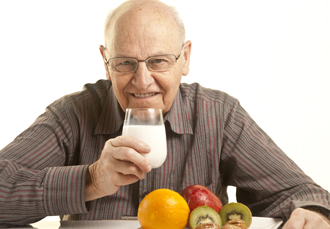Got Milk or Soy?
Eating foods that are high in soy or milk protein may offer another way to treat high blood pressure, according to a recent study led by Dr. Jiang He of the Tulane School of Public Health and Tropical Medicine.

A recent study reports that milk protein and soy protein lower blood pressure better than carbohydrates. (Photo from iStockphoto)
Milk and soy protein supplements are associated with lower systolic blood pressure compared to refined carbohydrate dietary supplement. The study's results suggest that partly replacing refined carbohydrates with foods or drinks high in soy or milk protein may help prevent and treat high blood pressure.
The clinical trial reported in Circulation: Journal of the American Heart Association is the first to document that milk protein lowers blood pressure for people with pre-hypertension and stage-1 high blood pressure.
Previous studies have shown that a diet rich in low-fat dairy products reduces blood pressure. Almost 75 million Americans have high blood pressure, a “silent killer” that can cause heart attacks, heart failure, strokes, kidney damage and other potentially fatal events.
“Our clinical trial directly compares soy protein with milk protein on blood pressure, and shows they both lower blood pressure better than carbohydrates,” said He, the Joseph S. Copes Chair in Epidemiology.
The 352 adults in the study were at increased risk of high blood pressure or had mild cases of the condition. Each was randomly assigned to take 40 grams of soy protein, milk protein or a refined carbohydrate supplement every day, for eight weeks.
“The systolic blood pressure differences we found are small for the individual, but they are important at the population level,” He said.
Based on previous research, a 2 mm Hg decrease in systolic blood pressure could lead to 6 percent fewer stroke-related deaths, a 4 percent lower rate of heart disease deaths and a 3 percent reduction in overall deaths among Americans. Long-term studies would be needed to make specific recommendations for dietary changes, He said.
The National Heart, Lung and Blood Institute funded the study.
